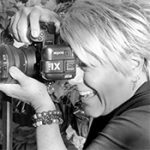Intro by Skip Cohen
I heard Jerry Ghionis talk once about how backward a career in photography can be. He spoke about how you go out as an artist, and at the same time you’re perfecting your technical skills, you’re expected to run a business. I’m paraphrasing a little…
“It’s all backward. Ideally, we should all spend a couple of years as a second-shooter and develop our skill set. Then we’d be ready to take on the challenges of running a business.”
I know many of you are well-established businesses, but the point is still so relevant. Too often you’re missing the time too experiment, practice and fine-tune your skills because you’re trying to manage all the various aspects of your business. You’re a right-brained artist constantly being pulled into all your left-brain operational responsibilities.
Take the time to seriously consider Chamira’s very first question and it might help you gain the insight into where you need the most help to grow your business in the new year.
By Chamira Young
“What would you do if you doubled your client base tomorrow?” If your answer is, “I would be happy, but everything would just break.” Then this post is for you.
Business, the B-Word. You have a photography business. As much as we would all love to shoot pictures all day, that’s just not the reality. We have to learn to balance being a “photo technician” and being a photography business owner. In a podcast with professional photographer Brent Watkins, he shared a few tricks of the trade and bits of advice on how to run a business while staying sane in your photography.
Turning Your Passion Into Production
One of the most challenging parts of it all is the actual running of the business. It’s hard to see a passion become work, but if it’s managed well it can be your most passionate business. Brent’s first trick he learned was to make sure you are a quality photographer before you charge anyone a dime.
Don’t try to run a business if you aren’t even ready to be a full-time professional photographer because doing both at the same time will burn you out and you will give up before you knew what happened. Practice and perfect your skills before making anyone pay.
Another tip to mastering the B-Word is to remember when you shoot more, you will have more business, and when there is more business there is more money. In order to be a professional photographer, you have to learn to run it like a business because, after all, the act of photography will not sell itself. It will take effort from you and many clients to ensure you can continue to do the job you love most and bring home the much-needed money to pay the bills.
The final suggestion is to help others help you. Outsourcing is a scary idea sometimes. You are giving your work to someone else to tamper with and crossing your fingers, right? Not exactly.
When you start to run your photography operation like a real business, you have to also begin to understand your own weaknesses. What are the areas you are weakest at? Editing? Lighting? Setting appointments Scheduling? You can’t do it all on your own and in fact, you shouldn’t. No one runs a great business alone.
Making A Vision
Start by hiring an assistant to help you with one thing. Maybe someone to edit photos or call back customers before their booking date and time as a reminder or maybe an extra person just to hold the lights in the studio.
Starting to make plans based on your future is creating a successful vision. How would you like your business to run? Create streamlined processes and find people to fill those slots as you grow, and things will start clicking together like hands of a clock. Starting small is the key. Don’t give up on photography because it turns into a business, learn as much as you can and make a vision for what kind of business you want to see grow.
















